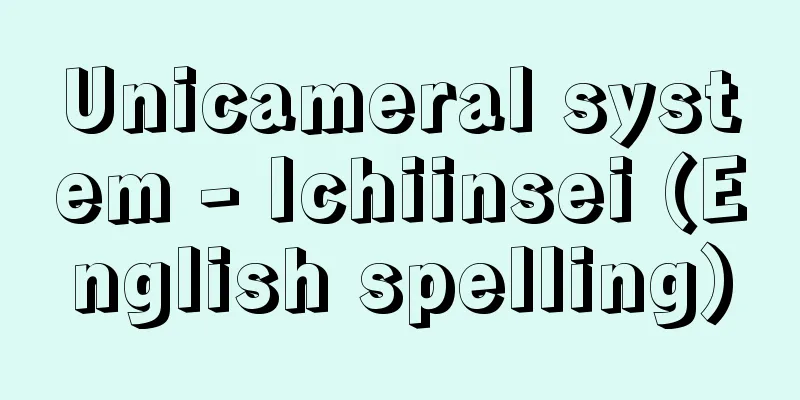Analytic philosophy

|
This refers to a style of philosophical research that has been conducted mainly in the UK and the US from the early 20th century to the present day. It is characterized by its "method" of focusing on the function of language when considering philosophical problems and attempting to solve (or resolve) philosophical problems through the analysis of language, as well as its inheritance of the empirical thinking that originated with Berkeley and Hume. [Nobuharu Tanji] Philosophical analysisLinguistic analysis, that is, the task of clarifying the meaning of linguistic expressions, has always been indispensable in philosophy. However, traditionally it has only been an auxiliary means to philosophical consideration. Russell, on the other hand, established linguistic analysis as a method of philosophy itself, using symbolic logic, to which he himself made a great contribution. The superficial grammatical structure of propositions in everyday language sometimes gives rise to certain philosophical problems, and strange philosophical theories are sometimes asserted as a result of being misled by them. The method known as "philosophical analysis" seeks to resolve philosophical problems by replacing such propositions with propositions that show a true logical structure. The history of analytical philosophy is the history of the development and criticism of this method of philosophical analysis. [Nobuharu Tanji] Logical AtomismRussell and the early Wittgenstein saw in symbolic logic the form of an ideal language for describing the world. They thought that the structure of reality directly corresponds to the structure of symbolic logic. This is the idea called logical atomism. According to this idea, in the only "ideal language" for describing reality, there are, first of all, the simplest propositions, "atomic propositions" that are independent of each other, and all other propositions (compound propositions) are synthesized from the atomic propositions in a truth-function manner, that is, in such a way that the truth or falsity of the compound proposition is determined only by the truth or falsity of the atomic propositions contained in it. Then, the question of the truth or falsity of a compound proposition ultimately comes down to the question of the truth or falsity of the atomic propositions that compose it. And "atomic facts" are assumed on the side of reality in correspondence with these atomic propositions. [Nobuharu Tanji] Logical positivismThe idea of logical atomism gave great strength to the movement of positivists following Mach, which started in Vienna in the 1920s. They believed that the idea of logical atomism and the analytical method on which it is based could provide a basis for our direct experience to all propositions about the world, and give clear meaning to scientific propositions from a positivist standpoint. At the same time, they believed that metaphysics, which they considered extremely dubious, could be clearly distinguished from science as solid knowledge. They expressed this idea as the "principle of verifiability." In other words, they claimed that metaphysical propositions, unlike scientific propositions, are meaningless because their truth cannot be verified by direct experience. However, it gradually became clear that both logical atomism and logical positivism had many difficulties despite their clarity, and from the 1930s onwards, their policies were changed. One trend was the "artificial linguistics school" centered in the United States, and the other was the "ordinary linguistics school" centered in the UK. [Nobuharu Tanji] Artificial LinguisticsThe artificial linguistics school, led by Carnap, attempted to improve logical positivism as an extension of it. Carnap positioned the work of philosophy as the "logic of science" and energetically constructed a strict logical language suitable for science. However, he did not adopt the idea of a "single ideal language" and accepted the coexistence of multiple languages (the principle of tolerance). He also argued that what is often thought of as a "philosophical" problem about facts is in fact a matter of choosing which language to adopt. Carnap believed that the logical and semantic rules of language could be discussed separately from the empirical content of science, but Quine seriously objected to this distinction (between analytic propositions and synthetic propositions). It was also a doubt about the possibility of the logical positivist's reductive analysis of direct experience. As an alternative, he presented a holistic image of theory (image of language) in which theory confronts experience as a whole. [Nobuharu Tanji] Everyday Language SchoolThe ordinary language school, centered in the UK, did not use symbolic logic as a guide to construct an artificial language, but instead analyzed everyday language by carefully describing its actual usage as it actually is. This was an extension of the analytical work that Moore had been doing earlier, but the influence of the later Wittgenstein was a major factor in making it a trend that continues to this day. According to him, philosophical "problems" and "theories" arise from misunderstandings of everyday language usage, and should be resolved by carefully describing the usage and clearing up these misunderstandings. This is the very job of a philosopher. Other philosophers who made great strides in everyday language analysis include Austin and Ryle. [Nobuharu Tanji] "Introduction to Philosophy" by B. Russell, translated by Nakamura Hideyoshi (Shakai Shisosha, Gendai Kyoyo Bunko)" ▽ "Language, Truth and Logic" by A.J. Ayer, translated by Yoshida Natsuhiko (1955, Iwanami Shoten)" ▽ "Wittgenstein" edited by Kuroda Wataru (1978, Heibonsha) " ▽ "Modern British Philosophy" by G.J. Warnock, translated by Sakamoto Hyakudai and Miyashita Haruko (1983, Keiso Shobo)" [References] | | |Source: Shogakukan Encyclopedia Nipponica About Encyclopedia Nipponica Information | Legend |
|
20世紀の初頭から現在に至るまで、英米を中心に行われている哲学研究の形態をいう。哲学の問題を考察する際に、言語の働きにとくに注目し、言語の分析を通じて哲学の問題を解決(あるいは解消)しようとする「方法」、および、バークリーやヒュームに起源をもつ経験主義的な考え方を受け継いでいる点が、その特徴である。 [丹治信春] 哲学的分析言語分析、すなわち言語表現の意味を明確化するという作業は、つねに哲学において不可欠であったといってよいであろう。しかし、従来それは哲学的考察に対する一つの補助手段であった。それに対してラッセルは、自らその成立に多大な貢献をした記号論理学を武器として、言語分析を哲学そのものの方法として確立したのである。日常言語における命題の表面的な文法構造から、ときとしてある種の哲学的問題が生じ、また、それに惑わされて奇妙な哲学説が主張されることがある。そこで、そのような命題を真の論理的構造を示すような命題に置き換えることによって、哲学的な問題を解消しようとするのが、「哲学的分析」とよばれる方法である。分析哲学の歴史は、この哲学的分析の方法の展開と批判の歴史である。 [丹治信春] 論理的原子論ラッセルと初期のウィットゲンシュタインは、記号論理学に、世界記述のための理想的な言語の形態をみた。そして彼らは、実在の構造は、記号論理学の構造に直接対応するものと考えた。これが論理的原子論とよばれる考えである。その考えによれば、実在を記述するための唯一の「理想言語」においては、まずもっとも単純な命題として、互いに独立な「原子命題」があり、他のすべての命題(複合命題)は、原子命題から真理関数的に、すなわちそれに含まれる原子命題の真偽だけからその複合命題の真偽が決まるような形で、合成されたものである。すると、複合命題の真偽の問題は、結局、それを構成する原子命題の真偽の問題に帰着する。そして、その原子命題に対応して、実在の側に「原子的事実」が想定されるわけである。 [丹治信春] 論理実証主義論理的原子論の考えは、当時(1920年代)ウィーンを中心に始まった、マッハの流れをくむ実証主義者たちの運動に大きな力を与えた。論理的原子論の考えと、その基礎にある分析の方法によって、世界について語るすべての命題に対して、われわれの直接経験という基盤を与え、科学の命題に実証主義の立場から明確な意味を付与しうると考えられたのである。それは同時に、彼らからみればきわめてうさんくさいものである形而上(けいじじょう)学を、確かな知識としての科学からきっぱりと区別できる、ということである。そのような考えを彼らは、「検証可能性の原理」として表現した。すなわち、形而上学の命題は科学の命題と違って、直接経験によって真偽を検証することができないがゆえに無意味なのだ、と主張したのである。 しかし、論理的原子論にも論理実証主義にも、その明快さとは裏腹に多くの困難があることがしだいに明らかになり、1930年代以降、その方針は変更されてゆくことになる。その一つの流れは、アメリカを中心とした「人工言語学派」であり、もう一つは、イギリスを中心とした「日常言語学派」である。 [丹治信春] 人工言語学派論理実証主義の延長線上でその改良を図ったのが、カルナップらの人工言語学派である。カルナップは、哲学の仕事を「科学の論理学」と位置づけ、科学に適した厳密な言語の論理的構成を精力的に行った。しかし、「唯一の理想言語」という考えはとらず、複数の言語の共存を認めた(寛容の原理)。そして彼は、しばしば事実をめぐる「哲学的」問題と考えられているものが、実はどの言語を採用するかという選択の問題なのだ、と主張した。カルナップは、言語の論理的・意味論的規則を科学の経験的内容から切り離して論ずることができる、と考えたが、クワインは、その区別(分析命題と総合命題との区別)に対して重大な異議を唱えた。それはまた、論理実証主義者による直接経験への還元的分析の可能性に対する疑義でもある。そして彼は代案として、理論が全体として経験と対峙(たいじ)するという、全体論的な理論像(言語像)を提示した。 [丹治信春] 日常言語学派イギリスを中心とする日常言語学派においては、記号論理学を指針として人工言語を構成するのではなく、現にあるがままの日常言語の実際の使用法を注意深く記述する、という方法による分析が行われた。これは以前からムーアが行っていた分析の作業の延長であるが、それが今日にまで及ぶ流れとなったことには、後期のウィットゲンシュタインの影響が大きい。彼によれば、哲学的な「問題」や「学説」は、日常的なことばの使用法の誤解から生じるのであり、その使用法を注意深く記述してその誤解を解くことによって、解消すべきものである。まさにそれこそが、哲学者の仕事なのである。日常言語分析で大きな成果をあげたほかの哲学者としてはオースティン、ライルらがいる。 [丹治信春] 『B・ラッセル著、中村秀吉訳『哲学入門』(社会思想社・現代教養文庫)』▽『A・J・エイヤー著、吉田夏彦訳『言語・真理・論理』(1955・岩波書店)』▽『黒田亘編『ウィトゲンシュタイン』(1978・平凡社)』▽『G・J・ワーノック著、坂本百大・宮下治子訳『現代のイギリス哲学』(1983・勁草書房)』 [参照項目] | | |出典 小学館 日本大百科全書(ニッポニカ)日本大百科全書(ニッポニカ)について 情報 | 凡例 |
Recommend
Fortune telling at a crossroads - Tsujiura
Also called Yuuke or Michiura. It is the act of g...
Fuke sect
A sect of Zen Buddhism founded by the Chinese Tan...
Extremadura (English spelling)
A region on the central coast of Portugal. It incl...
Rienzi (English spelling)
…In the same year, he married the actress Minna P...
《Traité d'harmonie réduite à ses principes naturels》 (English notation)
…He remained in Lyon until 1815. His greatest the...
Order of the Knights of John
A medieval knightly order. Its full name is the Or...
mortician
…The emergence of Western funeral directors occur...
Opera House
This complex is located at the scenic Bennelong Po...
The Tale of Jiraiya the Hero
Kabuki Kyogen. Historical piece. Four acts. Writte...
Villa Cisneros (English spelling)
...The coast of Western Sahara is one of the worl...
Emperor Momozono
Emperor of the mid-Edo period (reigned 1747-62). ...
Constable - Doushin
In the Kamakura period, it meant a reinforcement ...
Tartar
...It is said that there were many Tatars in this...
Salomon, Erich
Born: April 28, 1886 in Berlin [Died] July 7, 1944...
Strange - Kikou
...According to J. Baltrušaitis's "Middl...









